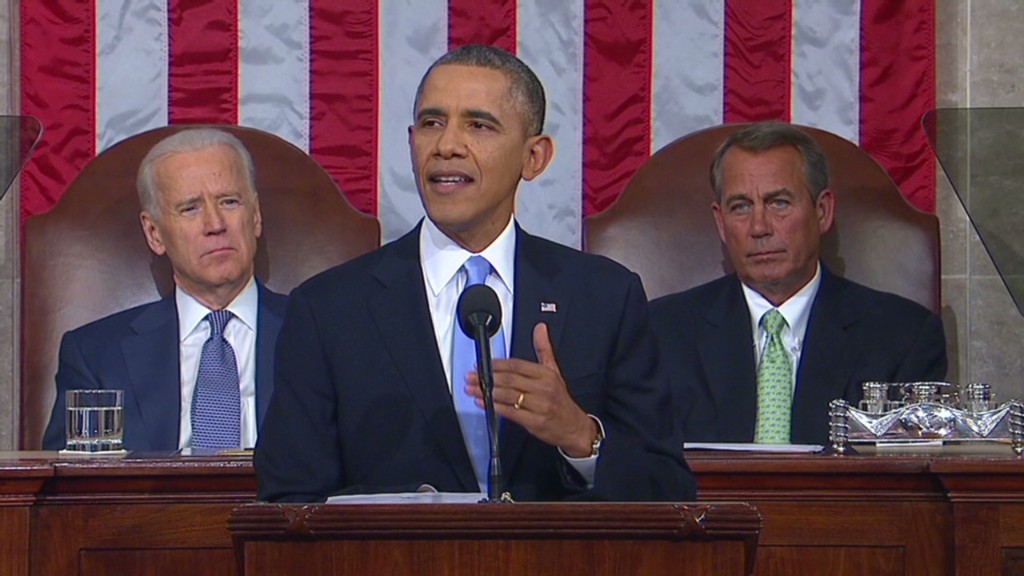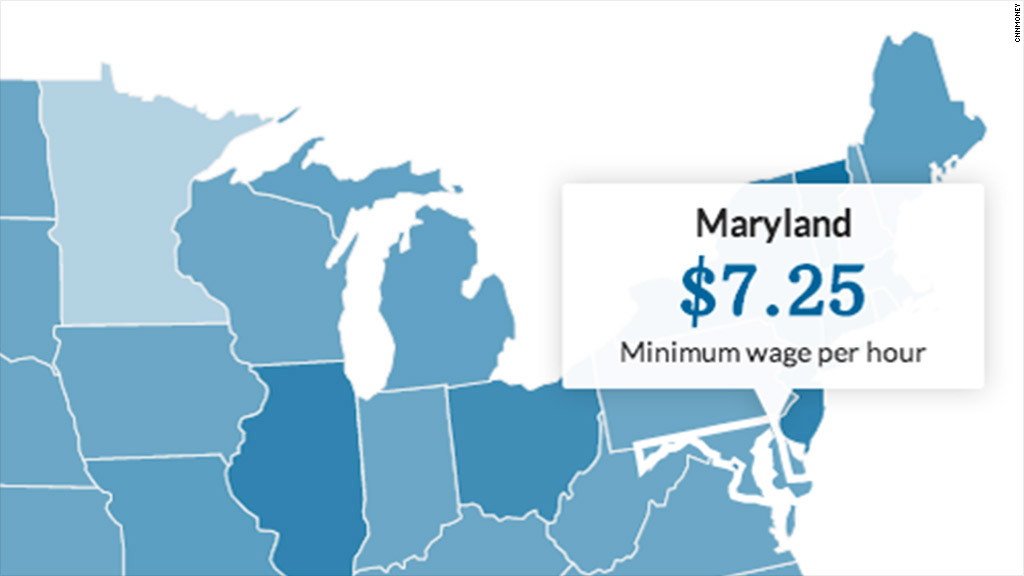In his State of the Union address, President Obama urged mayors, governors and state legislators not to wait for Congress to raise the minimum wage, and to take action into their own hands.
And local politicians have been doing just that.
Hawaii's Senate Tuesday passed a bill that would raise the state's minimum wage to $8.20 per hour by January 2015, and by 2017 to $10.10, the amount that President Obama backed in his address to the nation.
Hawaii's current minimum wage is set at the federal level of $7.25 per hour and the bill now goes to the House for approval.
On Monday, Maryland Governor Martin O'Malley's proposal to increase the state's minimum wage to $10.10 passed the state's House Economic Matters Committee. The bill is now slated to go for vote in the full House.
Related: What's my real living wage?
Minnesota's state legislature is also making progress on this front. This week, the state's House and Senate have been negotiating a wage increase that could bring Minnesota's minimum wage to $9.50, from $6.15 per hour, which is even below the federal level.
Cities and counties have also been galvanized into action. As of March 1, Santa Fe increased its minimum wage to $10.66 per hour, the third-highest in the country. That puts it just behind San Francisco and SeaTac, a tiny town centered around the Seattle-Tacoma airport in Washington,
Chicago is also pushing for change. Mayor Rahm Emanuel sent a resolution to the City Council expressing his support for Obama's proposal to raise the minimum wage to $10.10 per hour.
Related: How will a minimum wage hike hit businesses?
The increases at the state and local level come as Congress has stalled on taking any action. Last year, a group of Democrats introduced the Fair Minimum Wage Act, which proposed raising the minimum wage to $10.10 per hour, but its passage remains a political long shot.
"Congressional gridlock is motivating states and cities to take raising the minimum wage into their own hands," said Jack Temple, policy analyst at the National Employment Law Project, a labor rights advocacy group.
The frustration by congressional inaction propelled local governments to raise wage floors last year. In November, New Jersey residents voted to raise the state's minimum wage by $1 an hour to $8.25.

People in SeaTac voted to raise its minimum wage to $15 per hour, also in November. While a judge has since ruled that the ballot initiative passed by voters doesn't apply to most workers at the airport, the increase still applies to about 1,600 workers outside of the airport, according to advocacy group Yes!ForSeaTac.
The wage increase could also spread to all city workers in Seattle, where newly-elected mayor Ed Murray has made raising the minimum wage a key part of his agenda.
And on Jan. 1, 12 other states and three other cities also raised their wage floors.
The low wage issue was thrust into the spotlight starting in 2012, with workers from McDonald's (MCD), Wendy's (WEN), Wal-Mart (WMT) and other stores joining an increased number of protests nationwide for higher pay, better hours and benefits.
Fast food workers in particular have been calling for $15 per hour wages. The movement began with a small walkout in New York City in 2012 and has since gathered momentum. Strikes this past December drew fast food workers in more than 100 cities, organizers said.



